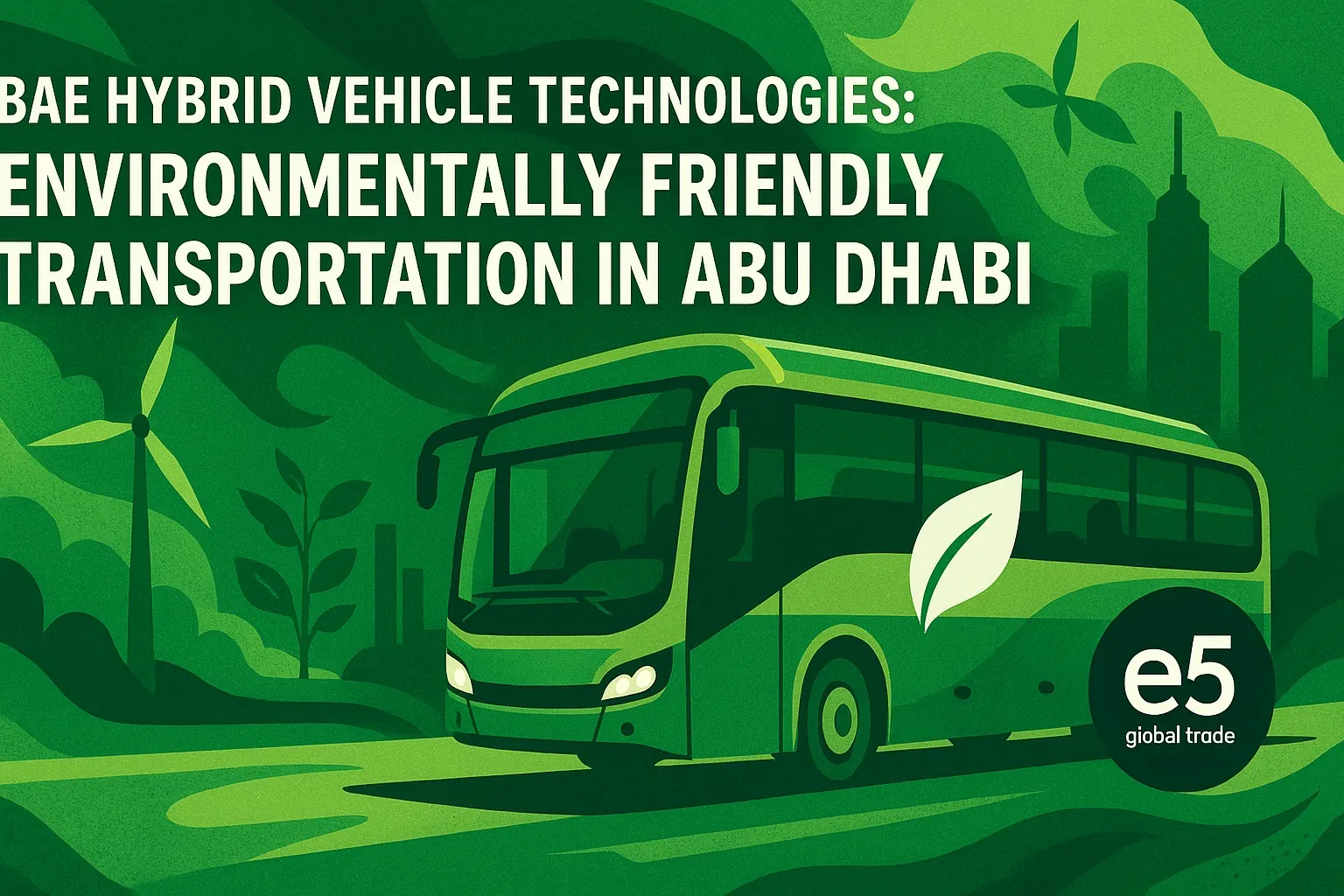UAE Hybrid Vehicle Technologies: Green Transportation in Abu Dhabi With its “Net Zero 2050” strategy and “We the UAE 2031” vision, the United Arab Emirates (UAE) is taking comprehensive steps to reduce dependence on fossil fuels, transition to sustainable energy, and promote environmentally friendly transportation. At the heart of this transformation are strong investments in the development, adoption, and local production of hybrid vehicle technologies, particularly in Abu Dhabi. Why Hybrid Vehicles? Hybrid vehicles (HEV/PHEV) serve as a critical bridge in the transition to fully electric vehicles: Lower fuel consumption → Lower carbon emissions Compatible with existing infrastructure → Alleviates the problem of charging station shortages Adapts to consumer habits → No range anxiety Cost advantage → More affordable starting price than fully electrics Abu Dhabi: The Heart of Green Transportation As the energy and technology hub of the UAE, Abu Dhabi is developing the hybrid vehicle ecosystem in three key areas: 1. Greening the Public Fleet: The Abu Dhabi government aims to make 50% of its public service vehicles hybrid or electric by 2025. Toyota Hybrid, Lexus HEV, and Mitsubishi PHEV models are being expanded in police, ambulance, and municipal vehicles. 2. Consumer Incentives: 15% customs duty reduction for hybrid vehicles; Campaigns promising savings of up to 20% on fuel and maintenance costs; Dedicated hybrid lanes and express maintenance points at ADNOC stations. 3. Local Production and R&D: With the support of the Strategic Development Fund (SDF), local production of hybrid powertrains and battery systems is beginning in Abu Dhabi. Khalifa University and the Technology Innovation Institute (TII) are conducting 20+ research projects on “Hybrid Power Management Systems.” Next-Generation Hybrid Technologies: Testing and Development in Abu Dhabi Plug-in Hybrids (PHEV) Are Coming to the forefront Models such as the BMW X5 xDrive45e, Volvo XC60 Recharge, and Mitsubishi Outlander PHEV are rapidly gaining traction in the UAE market. An average electric range of 60-80 km → Urban transportation can be fully electric. Local Development: “Abu Dhabi Hybrid Drive (AHD)” A team of Abu Dhabi-based engineers is working on diesel-hybrid integration—developing cooling and efficiency systems specifically suited to hot climates and desert conditions. Prototype vehicles are expected to enter the testing phase in 2025 Energy Infrastructure and IntegrationADNOC's Role: From Traditional Fuel to Smart EnergyADNOC is evolving into not just a fuel retailer, but also smart energy stations:Prioritized parking and fast charging points for hybrid vehiclesRenewable energy charging stations (solar canopies)Hybrid mode optimization suggestions via mobile application Abu Dhabi Future Energy Company (Masdar)The “Hybrid Mobility Lab” established in Masdar City is developing software that optimizes the energy consumption of hybrid vehicles.AI-powered “Eco-Driving Assistant” pilot projects offer drivers real-time efficiency recommendations. International CollaborationsAbu Dhabi is establishing strategic partnerships with global giants in the field of hybrid technology:Toyota & Denso: A joint R&D center has been established for the adaptation of hybrid systems to desert conditions.Siemens Energy: It is developing infrastructure for hybrid vehicle charging and energy management systems.Turkey & ASELSAN: An agreement has been signed for the supply of electronic control units (ECUs) used in hybrid vehicles. Roadmap: 2024 - 2030 2024: Dedicated traffic lanes and parking advantages for hybrid vehicles begin. 2025: 50% of the public fleet will be hybrid/electric; local “AHD” prototypes are on the road. 2026: ADNOC begins offering fully integrated hybrid-charging services at over 100 of its stations. 2030: Hybrid and electric vehicles will account for 60% of total vehicle sales. Conclusion Abu Dhabi is taking decisive steps to transcend its oil-rich emirate and become the regional leader in smart, clean, and sustainable transportation. Hybrid vehicle technologies are of strategic importance in this transformation, both as a transitional and permanent solution. With local production, R&D investments, and consumer incentives, the UAE is becoming the center of “green mobility” in the Middle East.
E5 Global Trade | Yazılar
UAE Hybrid Vehicle Technologies: Eco-Friendly Transportation in Abu Dhabi


